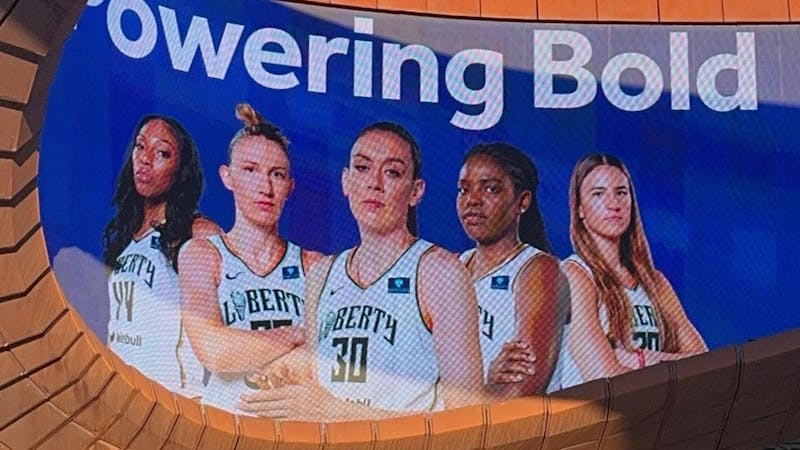Science
WNBA Faces Showdown Over Pay and Leadership Accountability

The Women’s National Basketball Association (WNBA) is at a critical juncture as players push for fair compensation and improved working conditions. With rising viewership and increased media attention, stars like Caitlin Clark and Angel Reese have helped elevate the league’s profile. However, tensions are escalating around upcoming negotiations for the Collective Bargaining Agreement (CBA), which could have significant implications for the league’s future.
CBA discussions are underway, following the players’ decision to opt out of the current agreement established in 2020, which was meant to last until 2027. The players argue that their salaries have not kept pace with the league’s growth. Currently, players earn only about 9% of league revenue, with salaries constituting under 7%. By comparison, NBA players receive approximately 50% of basketball-related income, showcasing a stark disparity in compensation.
Nneka Ogwumike, president of the Women’s National Basketball Players Association, emphasized the players’ demand for a revenue-sharing model that reflects the league’s success. “The players are still adamant that we get a percentage of revenue that grows with the business,” she stated, highlighting the need for equitable compensation.
Player Advocacy and Leadership Critique
The push for change is further fueled by player frustrations regarding WNBA leadership and officiating standards. Napheesa Collier, a key player for the Minnesota Lynx and vice-president of the players association, has been vocal in advocating for her teammates. During the 2025 All-Star Game, she organized an initiative where players wore shirts reading “Pay Us What You Owe Us,” a powerful statement reflecting their collective discontent.
Collier’s call for accountability intensified after suffering a serious ankle injury during the semifinals. Her head coach, Cheryl Reeve, was ejected for expressing frustration with the league’s officiating, underscoring the mounting tensions surrounding the CBA discussions. Collier publicly criticized league commissioner Cathy Engelbert, stating, “We have the best players in the world. We have the best fans in the world. But right now, we have the worst leadership in the world.”
Collier’s comments have sparked a broader conversation about the future of the WNBA. She argued that the league’s framing of CBA negotiations as a matter of financial sustainability overlooks the necessity for accountability and consistent standards.
In a controversial exchange, Engelbert allegedly told Collier that “only the losers complain about the refs.” Collier also recounted Engelbert’s remarks suggesting that players should be grateful for the platform the WNBA provides, a statement that many found dismissive. Engelbert has since denied these allegations, but the fallout has led to a shift in public sentiment against her leadership.
Unity Among Players and Coaches
In the wake of Collier’s statements, support from players and coaches has been significant. A’ja Wilson, the league MVP, expressed her disgust over Engelbert’s comments, highlighting the importance of representation and advocacy within the players association. Social media has also seen a wave of support, with players like Angel Reese expressing admiration for Collier’s courage in speaking out.
The atmosphere at recent events has reflected this growing frustration. During a championship trophy presentation for the Las Vegas Aces, Engelbert faced boos from the crowd, a clear indication of her diminishing support among fans and players alike.
As the league grapples with these challenges, the stakes are high. These negotiations are not merely about salary caps and free agency; they are about the very essence of the WNBA’s identity. Players argue that without a commitment to fair compensation and accountability, the league’s future may be at risk.
Collier encapsulated the sentiment of many when she stated, “Sustainability without accountability is not sustainable.” As the WNBA stands at a pivotal moment, players are advocating for respect not only for themselves but for future generations of female athletes. This is a time when the league must acknowledge its responsibility to its players, who aspire to inspire young girls with dreams of greatness, just as they once dreamed themselves.
The outcome of these negotiations will determine not only the financial landscape of the WNBA but also the legacy it leaves for aspiring athletes around the world.
-

 Science2 weeks ago
Science2 weeks agoIROS 2025 to Showcase Cutting-Edge Robotics Innovations in China
-

 Politics2 weeks ago
Politics2 weeks agoJudge Considers Dismissal of Chelsea Housing Case Citing AI Flaws
-

 World2 weeks ago
World2 weeks agoBravo Company Veterans Honored with Bronze Medals After 56 Years
-

 Top Stories2 weeks ago
Top Stories2 weeks agoIndonesia Suspends 27,000 Bank Accounts in Online Gambling Crackdown
-

 Lifestyle2 weeks ago
Lifestyle2 weeks agoStone Island’s Logo Worn by Extremists Sparks Brand Dilemma
-

 World2 weeks ago
World2 weeks agoHoneywell Predicts Record Demand for Business Jets Over Next Decade
-

 Health2 weeks ago
Health2 weeks agoStartup Liberate Bio Secures $31 Million for Next-Gen Therapies
-

 Sports2 weeks ago
Sports2 weeks agoMel Kiper Jr. Reveals Top 25 Prospects for 2026 NFL Draft
-

 Health2 weeks ago
Health2 weeks agoTop Hyaluronic Acid Serums for Radiant Skin in 2025
-

 Politics2 weeks ago
Politics2 weeks agoNew Jersey Voters Urged to Register Ahead of November Election
-

 Sports2 weeks ago
Sports2 weeks agoYamamoto’s Mastery Leads Dodgers to 5-1 Victory in NLCS Game 2
-

 Lifestyle2 weeks ago
Lifestyle2 weeks agoMary Morgan Jackson Crowned Little Miss National Peanut Festival 2025







